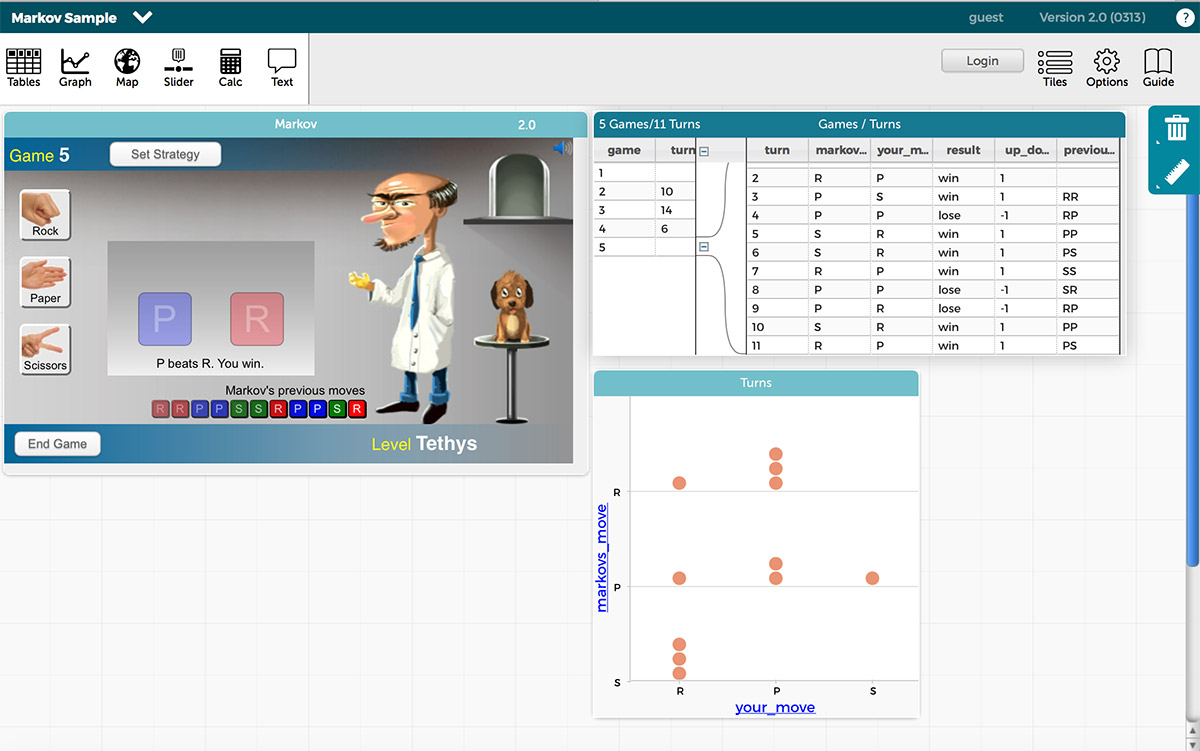The National Science Foundation has awarded the Concord Consortium a three-year Cyberlearning grant to develop and test new data science games for high school biology, chemistry, and physics, and research how learners conceive of and learn with data. The Data Science Games project builds on prior work, which led to the invention of a new genre of learning technology—a “data science game.”
The use of games for education is a growing field with significant promise for STEM learning. Games provide a powerful means of motivation and engagement, and align with many STEM learning goals. Data Science Games is making use of the data generated as students play digital games in a novel and creative way. When students play a data science game, their gameplay actions generate data—data that is essential to the game itself. To succeed at a data science game, students must visualize, understand, and properly apply the data their game playing has generated in order to “level up” and progress within the game. As they visualize and analyze the data, planning and plotting new, evolving strategies, students learn the fundamentals of data science.
The new data science games will be embedded in our open source Common Online Data Analysis Platform (CODAP). Data from the games will flow seamlessly into CODAP thanks to innovations that leverage advances in the interoperability of components embedded in browsers, new capabilities for data visualization using HTML5, and recent innovations in design of interfaces compatible with both PC-based browsers and touch devices.
Project research will investigate ways this new genre of educational technology can be integrated into classroom learning. We will identify and characterize learner perceptions of data, including how learners see flat, hierarchical, and network structures as emerging from realistic problems; questions learners ask with data; and learning trajectories for restructuring and visualization of data.
The project will also produce guidelines for making use of data science games across a range of grade levels and subject matter. Data Science Games will thus provide both models and templates of how to integrate learning of data science into existing content areas, helping to grow the next generation of data scientists.
 Play Roshambo against the evil Dr. Markov (log in as guest). If you win, you can save Madeline the dog. Improve your odds by analyzing Markov’s moves in a graph.
Play Roshambo against the evil Dr. Markov (log in as guest). If you win, you can save Madeline the dog. Improve your odds by analyzing Markov’s moves in a graph.